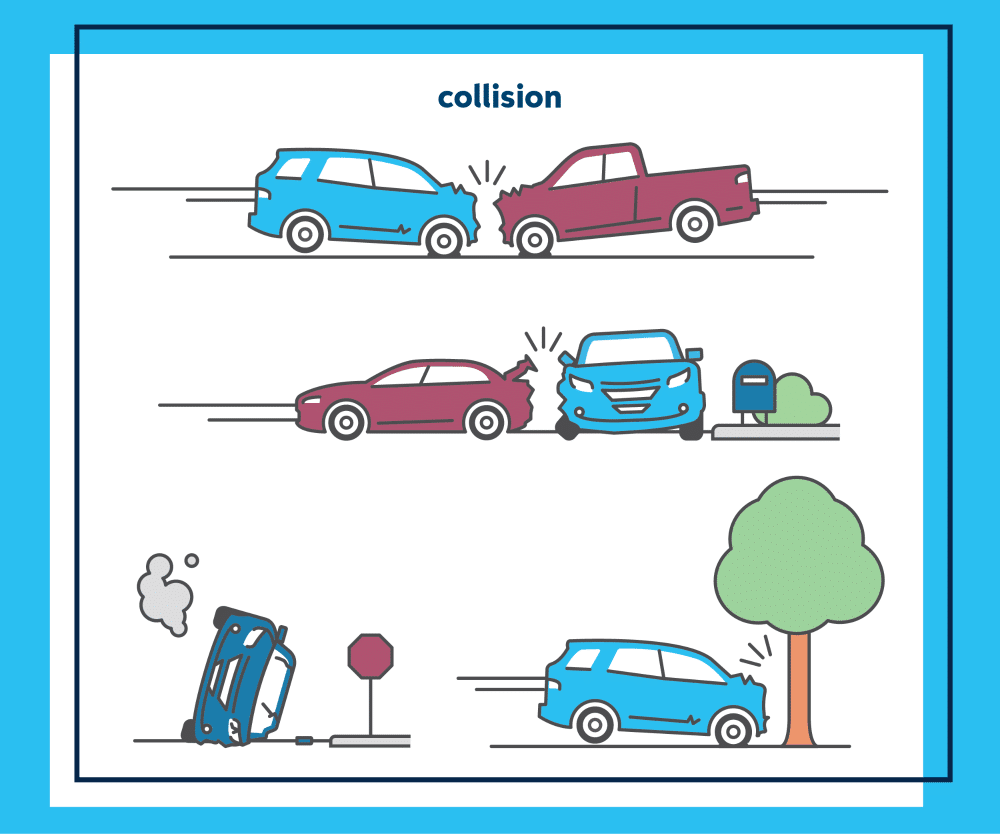
A collision refers to an event where two or more vehicles, objects, or individuals impact each other, often resulting in property damage, physical injuries, or both. Collisions can occur in various forms, including rear-end accidents, side-impact crashes, and head-on collisions. They are commonly caused by factors such as distracted driving, speeding, impaired driving, or poor road conditions. In personal injury claims, establishing the cause and fault of a collision is crucial for determining liability and securing compensation for damages. At 770GoodLaw, we help clients affected by collisions to pursue fair compensation for their injuries and losses, guiding them through every stage of the legal process.
Types of Collisions
Collisions can vary in severity and impact based on the circumstances of the crash. Common types of collisions include:
- Rear-End Collisions: Occur when one vehicle strikes the back of another, often due to distracted driving or following too closely. These collisions frequently cause whiplash and other soft-tissue injuries.
- Side-Impact Collisions: Also known as T-bone accidents, side-impact collisions occur when the front of one vehicle strikes the side of another, often at intersections. These can result in serious injuries due to the lack of side protection.
- Head-On Collisions: These are among the most dangerous collisions, where the front ends of two vehicles collide, usually resulting in severe injuries or fatalities.
- Single-Vehicle Collisions: Involve only one vehicle, often caused by driver error, poor road conditions, or wildlife on the road. Passengers or drivers may still seek compensation if an external factor contributed to the crash.
- Multi-Vehicle Collisions: Also known as pile-ups, these involve three or more vehicles and can be complex in terms of liability, requiring a detailed investigation.
Common Causes of Collisions
Collisions can result from a variety of factors, often involving driver negligence or external conditions. Common causes include:
-
Distracted Driving: Drivers texting, using GPS, or engaging in other distractions may fail to notice changing road conditions, leading to collisions.
-
Speeding: Excessive speed reduces reaction time and increases the severity of impact, contributing to the likelihood and intensity of collisions.
-
Impaired Driving: Alcohol, drugs, or fatigue impair a driver’s judgment, coordination, and reaction time, making collisions more likely.
-
Weather Conditions: Rain, ice, and fog can reduce visibility and road traction, contributing to accidents.
-
Failure to Yield: Ignoring yield signs or failing to yield the right of way at intersections often results in side-impact or head-on collisions.
Establishing Liability in Collision Cases
Determining who is at fault in a collision is essential for pursuing compensation. Liability is typically established by examining evidence and considering legal standards of care. Key steps in establishing liability include:
- Gathering Evidence: Police reports, witness statements, traffic camera footage, and photographs of the scene help establish who was at fault.
- Reconstructing the Accident: Accident reconstruction experts may analyze the positioning of vehicles, skid marks, and impact points to determine how the collision occurred.
- Proving Negligence: Demonstrating that the at-fault driver breached their duty of care through actions like speeding, distracted driving, or impairment.
- Comparing Fault Percentages: In states with comparative negligence laws, liability may be shared among multiple parties, and each party’s compensation is reduced by their percentage of fault.
Compensation Available for Collision Victims
Individuals injured in collisions may be entitled to compensation for both economic and non-economic damages. Common forms of compensation include:
-
Medical Expenses: Reimbursement for immediate medical treatment, surgeries, rehabilitation, and any future medical care needed due to the injury.
-
Lost Wages: Compensation for income lost during recovery, as well as any future earnings impacted by long-term injuries.
-
Pain and Suffering: Damages for physical pain, emotional distress, and the overall impact on the injured person’s quality of life.
-
Property Damage: Coverage for repairs or replacement of the vehicle or other personal property damaged in the collision.
Steps to Take After a Collision
Taking prompt action after a collision can protect your rights and strengthen your case. Important steps include:
- Seeking Medical Attention: Immediate medical care ensures that injuries are diagnosed and treated, while creating medical records that document the impact of the collision.
- Reporting the Accident: Filing a police report provides an official record of the collision, which can be valuable for proving fault and establishing liability.
- Documenting the Scene: Taking photos of the accident scene, vehicle damage, and injuries can provide important evidence for your claim.
- Consulting a Lawyer: Legal guidance helps you understand your rights, evaluate your claim, and avoid common pitfalls in the claims process.
How 770GoodLaw Assists Clients in Collision Cases
At 770GoodLaw, we provide comprehensive support for clients affected by collisions, from gathering evidence to negotiating fair settlements. Our approach includes:
- Conducting a Thorough Investigation: We gather all relevant evidence, including police reports, witness statements, and medical records, to build a strong case for liability.
- Evaluating the Full Scope of Damages: Our team ensures that all economic and non-economic damages are accurately assessed, from medical bills to long-term impacts on quality of life.
- Negotiating with Insurers: We handle all communications and negotiations with insurance companies, advocating for a settlement that reflects the full extent of our clients’ injuries and losses.
- Representing Clients in Court: If a fair settlement cannot be reached, we are prepared to represent clients in court, presenting a compelling case to maximize compensation.
Importance of Legal Representation in Collision Cases
Navigating a collision claim requires a thorough understanding of fault laws, evidence requirements, and negotiation tactics. Skilled legal representation helps ensure that clients receive the compensation they deserve for their injuries and property damage. At 770GoodLaw, we provide dedicated support for collision victims, guiding them through each stage of the legal process with care and expertise.
Why Choose 770GoodLaw for Collision Claims
Our commitment to Relentless Reliability and Sincetegrity drives us to offer comprehensive, client-centered support in collision cases. At 770GoodLaw, we work tirelessly to protect our clients’ rights and secure the compensation they need to recover fully.
